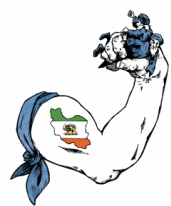Friday, 7 July 2006
Why can't our nation read, write, cipher or THINK?

This fits so well with my previous post.
"You are from the Midwest. You are culturally deprived, so you would not understand it anyway."That I intend to buy the book. I believe it was this quote that made up my mind.
The Seven Deadly Principles "After sober and judicious consideration, and weighing one thing against another in the interests of reasonable compromise, H. L. Mencken concluded that a startling and dramatic improvement in American education required only that we hang all the professors and burn down the schools. His uncharacteristically moderate proposal was not adopted."
Those who actually knew more about education than Mencken did could see that his plan was nothing more than cosmetic and would in fact provide only an outward appearance of improvement. Those who knew less, on the other hand, had somewhat more elaborate plans of their own, and they just happened to be in charge of the schools.
Why can't our nation
read, write, cipher or THINK?
The Underground Grammarian takes on
the American Educational Establishment.
Praised by critics across the nation,
The Graves of Academe is Richard Mitchell's angry and brilliant
tour through America's bloated public school system--whose mangled,
self-serving language and policies would make Orwell wince. Stamped
with vintage Mitchell wit and laced with stinging examples from
The Underground Grammarian, The Graves of Academe pinpoints
the historic sources of the mind-boggling "educationist"
bureaucracy and reveals why today's schools are riddled not only
with illiterate students but with illiterate teachers and administrators
as well.
THIS book started out to be a large collection of pieces from The Underground Grammarian, a dissident if tiny journal that has achieved notoriety if not fame
Read the Book, don't wait for the Movie.
Technorati Tag:
Education|
British Ahwazi Friendship Society
We never hear much about things like this in the media do we. I figure, we don't have to be British to take an interest in Totalitarian Oppression do we?
The British Ahwazi Friendship Society (BAFS) website celebrates its first anniversary this week.
BAFS was created in December 2004 to lobby on behalf of Ahwazi Arabs and attract international attention to their cause, which has never received the coverage it deserves. The Ahwazis endure ethnic persecution, high levels of poverty, forced displacement and state terrorism, despite being indigenous to one of the world's most oil-rich regions.
BAFS's position has been to support Ahwazi groups that are committed to non-violent means to foster change and promote human rights, equality ande democracy in Iran. It works in collaboration with the Democratic Solidarity Party of Ahwaz (DSPA), the Ahwaz Human Rights Organisation (AHRO), the Ahwaz Studies Centre, the Ahwaz Education and Human Rights Foundation and the Unrepresented Nations and Peoples Organisation (UNPO).
The organisation's website was launched in March 2005 during the 61st session of the UN Commission on Human Rights, where Mansour Silawi-Ahwazi of the DSPA and Sanjukta Ghosh representing the Ahwaz Human Rights Organisation - both officers of the BAFS - met with UN officials to highlight issues affecting Ahwazis (
click here for article).
The Ahwazis hit the headlines the following month when an intifada in Al-Ahwaz (Khuzestan) was brutally put down by security forces, leading to more than 160 deaths. The unrest was sparked by the leak of a letter written by former Vice President Mohamed Ali Abtahi calling for the "ethnic restructuring" of Khuzestan to reduce the Arab population from 70 per cent to 30 per cent of the province's total (
click here for article). BAFS was the first website to report the uprising and to publish the translation of the letter.
In July, UNHCR's Special Rapporteur for Adequate Housing Miloon Kothari spoke of his outrage over the forced displacement of Ahwazi Arabs. Kothari's findings and BAFS's lobbying efforts prompted MEPs such as Paulo Casaca to include the condemnation of the forced migration of Ahwazi Arabs in a motion on Iran in October. The motion was sponsored by all the European Parliament's political groups and represented a major breakthrough for the Ahwazi lobbying campaign.
BAFS's coverage of the Ahwazi struggle against persecution and poverty has attracted plaudits from leading journalists, politicians, human rights groups and lobbyists. Many would not have known about the plight of the Ahwazis without BAFS's reputation as the only source of news and information on Ahwaz in the English language. Within just one year and with few resources, BAFS has helped transform the Ahwazi struggle from an unknown local dispute into an issue with important regional and international importance. Just this month, BAFS's work was acknowledged in feature articles in the Washington Times and Shaarq magazine, the UK's only English language publication the British Arab community.
BAFS Chairman Daniel Brett said: "The coming year will be crucial for the Ahwazi cause, which risks being drowned out by the arguments over Iran's nuclear programme. In the year ahead, we will be holding meetings at the House of Commons in London and the European Parliament and Commission in Brussels and will continue to build on our success in raising the profile of Ahwazis among NGOs, the United Nations and the media. We believe that the Ahwazis can only win freedom, peace and justice with international solidarity, not with bullets and guns."
Sigh, I am afraid that if they are waiting on the UN for succor, it will be awhile. When one contemplates Rwanda and Dafur, one does not get a sense of confidence that there will be anything but a Committee Paper of Moral Outrage after they are all dead. ;-(
For those who think my attitude is too harsh try a google search for keywordsd UN & Congo.
Technorati Tags:
Islam***
Iran |
Up To Hits From 104 Different Countries Now
 create your own visited countries map
create your own visited countries map or
vertaling Duits NederlandsNote: I find
eXtreme Tracking

to give the most complete geographical record. I highly recommend it.
|
Thursday, 6 July 2006
You are from the Midwest. You are culturally deprived, so you would not understand it anyway.
Some may reply to the following, that it is an isolated incident and a trivial sum, then rant hysterically about how much the War in Iraq costs and how THAT is destroying the US economy, which funds could be far better used to improve our educational system
I submit that it is, not trivial, but an example of the same type of mentality that now controls our educational system, and is to a large part one of the reasons why, after funding for Public Education has tripled, the results have been a
decrease in the quality and effectiveness of our Public School Systems.
And people wonder why our children cannot seem to learn to read, write and do simple math?
Actually they
can but it seems to be more possible if they are in private schools or home schooled,
If you wonder why that is, read the following and reflect.
The NEA has been more patronizing than patron to the towns and villages of Middle America. An example: in 1969 NEA grantee George Plimpton, editor of the American Literary Anthology/2, confounded observers by paying $1,500 for a poem by Aram Saroyan consisting of the single misspelled word, "lighght."
When an assistant to an Iowa congressman asked Plimpton what Saroyan's poem meant, the editor replied, "You are from the Midwest. You are culturally deprived, so you would not understand it anyway."(54) We are subsidizing superciliousness; taxpayers are mulcted and then mocked, and if they complain, it is "good old-fashioned American small town hysteria,"(55) in one NEA staffer's phrase.
PS this brilliant work of Art also received a $750 Grant from the National Endowment for the Arts.
I am going to use the NEA website as a source for that claim.
Aram Saroyan's seven-letter poem - lighght - for which a federally funded effort indirectly paid $750 - was among those selected for the anthology.
Originally I meant to use "Why Johnny Can't Read" as a title for this, but the quote I ended up using illustrates the demarcation between Red State Flyover Land and Blue State Beltway arrogance so much more effectively.
Technorati Tags:
Pork:
Education Linked to
"Share the link lovin Thursday and Happy Birthday Ziggy!" at Liberal Common Sense
Bacon Break ? Midweek Water Balloon Fest OTB at TMH's Bacon Bits
Please Bear With Me at Sed Vitae
Dear God, Strike me blind. Thanks! Plus Open Trackback Thursday at Mental Rhinorrhea
Open Trackback Time at customerservant.com
Another OTA Weekend at The Crazy Rants of Samantha Burns
|
THE LETTER OF SOLIDARITY WITH ORIANA FALLACI
I signed this petition at the 1800 level, as I write this there are : 2640 Signatures.
That IMO is rather pathetic, If you agree with the philisophy as stated. Sign and PASS IT ON.
If you only sign to have your name on the same petition as
LECH WAŁĘSA? do it for that reason.
THE LETTER OF SOLIDARITY WITH ORIANA FALLACIJudge Armando Grasso of Bergamo acknowledged a suit against Oriana Fallaci filed by the president of Muslim Union of Italy. On June 6th the trial against a journalist and a publicist over insult of Islam by statements made in her book "The force of reason" will start. We want to express our concern about the decision made by the judge of Bergamo, since such practices can lead to restrictions of freedom of speech in the realm of European democracy with human rights being its largest achievement.
We believe that freedom of speech is a universal value and should not fall within political, cultural or religious interests. Oriana Fallaci has been fighting for the freedom of expression in her work as a journalist throughout her whole life. As we intend to protect the freedom of speech we want to express our solidarity with Oriana Fallaci. Being aware of contentiousness of her latest statements, we still stand against the trial which is infringing the freedom of expression.
So far, the letter was signed by: KS. ADAM BONIECKI, ZBIGNIEW BUJAK, PROF. JANUSZ DEGLER, RED. KAMIL DURCZOK, WŁADYSŁAW FRASYNIUK, PROF. BRONISŁAW GEREMEK, PROF. MARIA JANION, RED. KATARZYNA KOLENDA-ZALESKA, BOGDAN LIS, PROF. STEFAN MELLER, PRIME MINISTER TADEUSZ MAZOWIECKI, ADAM MICHNIK, PROF. JAN MIODEK, RED. PIOTR NAJSZTUB, JANUSZ ONYSZKIEWICZ PH.D., RED. JUSTYNA POCHANKE, PROF. ADAM ROTFELD, PROF. BARBARA SKARGA, PROF. MAGDALENA SRODA,
PRESIDENT LECH WAŁĘSA.If you are serious? You may want to buy both of Fallaci's latest books, read them and pass them on as well.
I did.
The Force of Reason and
The Rage and The Pride Technorati Tags:
FALLACI***
Islam***
Free Speech***
Italy |
Wednesday, 5 July 2006
Why Does Treason Never Prosper?
Treason doth never prosper: what's the reason? Why if it prosper, none dare call it treason.
Ovid John HaringtonThey say that Insanity is doing the same thing over and over again, expecting different results. The Democratic Party is stuck in a temporal loop it seems doing the same thing over and over again, expecting the same results long after their time has passed,.
But do
not impugn their
Patriotism!.
Well except for Natalie Maines of the Dixie Chicks,in a refreshing display of honesty, she revealed that she has not the slightest idea what patriotism is, does not understand why anyone one values it and has none herself.
Lead singer, Natalie Maines recently said, ?The entire country may disagree with me, but I don?t understand the necessity for patriotism. Why do you have to be patriotic? About what? This is our land? Why? You can like where you live and like your life, but as for loving the whole country?I don?t see why people care about patriotism.?
It is a Sign of the Times that our language fails. We are witnessing today actions which do not fit the traditional definition of Treason.
In law, treason is the crime of disloyalty to one's nation or state. A person who betrays the nation of their citizenship and/or reneges on an oath of loyalty and in some way willfully cooperates with an enemy, is considered to be a traitor. Oran's Dictionary of the Law (1983) defines treason as: "...[a]...citizen's actions to help a foreign government overthrow, make war against, or seriously injure the [parent nation]." In many nations, it is also often considered treason to attempt or conspire to overthrow the government, even if no foreign country is aided or involved by such an endeavor
Historically Traitors:
Want the other side to win.
Have a grudge against their own Country.
Are being blackmailed or tricked into betraying their own Country.
Sold out the Country for their own benefit.
Some examples are:
Walter Duranty who received a Pulitzer for his articles covering up Stalin's Genocide, because?
"The deaths of a few tens of millions of peasants are of no consequence when compared with the Future Victory of the Revolution"
Benedict Arnold who felt he was not given his due from his own countrymen, note he was until he betrayed his Country one of the Greatest TRUE Heros of the Revolution.
Lastly all the folks who fell prey to the tricks of the KGB and other foreign intelligence operations.
Or just wanted the money.
Today we have those working feverishly, giving aid and comfort to the enemy,
but in truth the aid and comfort to the enemy is a secondary effect.
They have no interest in the other side winning and except for the fact that the public keeps electing Republican, no real grudge against America.
They are not being blackmailed.
What they are doing is, anything it takes to bring down their political opponents
here no matter how much damage it does to America elsewhere.
It is to be blunt partisan politics of the blackest nature.
They care nothing about the damage they do to America, nor the aid they render to its enemies as long as their actions increase the probability they may regain power.
Since power is money, they are close to my last example of Traitors.
Those who "just wanted the money"
But don't impugn their patriotism, most do not rise to the level of honesty that Natalie Maines exhibits.
And if they win the Presidency, control of Congress,then no matter how much harm they will have done to this Country,
None dare call it Treason.
Technorati Tag:
Treason|
Russia: What Now
By Peter ZeihanFor the past two weeks, the Kremlin has been issuing a flood of seemingly contradictory statements through officials such as Gazprom CEO Alexei Miller, deputy presidential administration heads Vladislav Surkov and Igor Sechin, Deputy Prime Ministers Dmitry Medvedev and Sergei Ivanov, Foreign Minister Sergei Lavrov and even President Vladimir Putin.
One day, Miller seemed to obliquely threaten European natural gas supplies; the next, Gazprom granted the Ukrainians another three months of exports at less than half European market rates. On another day, Lavrov proposed sharply limiting discussion at the upcoming Group of Eight (G-8) summit in St. Petersburg to preclude topics, such as Chechnya, that the Russians find uncomfortable; this was followed by a statement from Lavrov's office declaring no topic taboo. On another front, Ivanov waxed philosophic about the might of the Russian military and warned of Western encroachment, while Surkov noted that Russia would never modernize without robust and friendly relations with the West. At one point, the Russians could be seen aggressively lobbying for Iran's right to a full civilian nuclear program, and then just as empathically noting their concerns about nuclear proliferation.
These statements and others like them not only seem disjointed -- they are disjointed. These disconnects are the public symptoms of an underlying and systemic problem. Briefly stated, Russia -- after 25 years of the Andropov doctrine -- finds itself in a deepening crisis, with no immediate or effective solutions apparent.
The issues with which Russia grapples are multifaceted -- and they have only grown in scale since they were first recognized by the leaders of Andropov's generation.
Demographically, the country is in terrible shape: The population is growing simultaneously older, smaller and more sickly. The number of Muslims is growing, while the number of ethnic Russians is declining. Nearly all of the economic growth that has occurred since the 1998 financial crisis has stemmed from either an artificially weak currency or rising energy prices, and there are echoes of the Soviet financial overextension after the 1973 and 1981 oil price booms. NATO and the European Union -- once rather distant concerns -- now occupy the entire western horizon, and they are steadily extending their reach into a Ukraine whose future is now in play.
More recently, another set of concerns -- encapsulated in the START treaty -- have cropped up as well. The treaty, which took force in 1991 and obliges the United States and Russia to maintain no more than 6,000 nuclear warheads apiece, expires in 2009, and the United States is not exactly anxious to renew it. Among American defense planners, there is a belief that the vast majority of the Russian nuclear defense program is nearing the end of its reliable lifecycle, and that replacing the entire fleet would be well beyond Russia's financial capacity. From the U.S. point of view, there is no reason to subject itself to a new treaty that would limit U.S. options, particularly when the Russia of today is far less able to support an arms race than the Soviet Union of yesteryear.
With all of that, it is becoming clear to leaders in Moscow that something must be done if Russia is to withstand these external and internal threats. The government is casting about for a strategy, but modern Russian history offers no successful models from which to work.
The Andropov DoctrineModern Russian history, of course, dates from before the fall of the Soviet Union -- beginning with Yuri Andropov's rise to power in November 1982. As someone who was in charge of the KGB, in a state where information was tightly compartmentalized, Andropov came into office knowing something that did not become apparent to the rest of the world for years: Not only was the Soviet Union losing the Cold War, but it was dangerously close to economic collapse. The West had long since surpassed the Soviets in every measure that mattered -- from economic output to worker productivity to military reach. In time, Andropov was convinced, Moscow would fall -- barring a massive change in course.
Andropov's plan was to secure money, managerial skills and non-military technologies from the West in order to refashion a more functional Soviet Union. But the Soviets had nothing significant to trade. They did not have the cash, they lacked goods that the West wanted, and Andropov had no intention of trading away Soviet military technology (which, even 15 years after the Cold War ended, still gives its U.S. counterpart a good run for the money). In the end, Andropov knew that the Soviet Union had only one thing the West wanted: geopolitical space. So space was what he gave.
It was what subsequent leaders -- Gorbachev, Yeltsin, and Putin after them -- gave as well. The one common thread uniting Russian leaders over the past quarter-century has been this: the belief that without a fundamental remake, Russia would not survive. And the only way to gain the tools necessary for that remake was to give up influence. Consequently, everything from Cuba to Namibia to Poland to Afghanistan to Vietnam was surrendered, set free or otherwise abandoned -- all in hopes that Russia could buy enough time, technology or cash to make the critical difference.
This was the strategy for nearly 25 years, until the loss of Ukraine in the
Orange Revolution raised the specter of Russian dissolution. The Russians stepped away from the Andropov doctrine, abandoned the implicit bargain within it, reformed the government under the leadership of pragmatists loyal to Putin, and began pushing back against American and Western pressure.
It has not gone altogether well.
The CruxWhile the Russians have hardly lost their talent for confrontation when the need arises, the confrontations they have initiated have been countered. The Russians are attempting to push back against the rise of American influence in their region with any means possible, with the goal of distracting and deflecting American attention. But there is an element of self-restraint as well: The
pragmatic leaders now in power realize full well that if the Kremlin pushes too hard, the very tools they use to preserve their influence will trigger reactions from the United States and others that will only compound the pressure.
In the past seven months, Moscow has temporarily shut off
natural gas supplies in an attempt to force Western European powers to assist Russia in reining in portions of its near-abroad that Moscow viewed as rebellious. The response from the Europeans, however, has been to begin exploring ways of weaning themselves from Russian energy supplies -- something that was never contemplated during Cold War-era Red Army maneuvers. Meanwhile, Moscow has attempted to engage China in an alliance that would counterbalance the United States, and China has taken advantage of this overture to
extend its own reach deep into Central Asia. Meanwhile, the Russians have tried using arms sales and diplomacy to complicate U.S. efforts in the Middle East. However, they have found themselves being used as a negotiation tool by the Iranians, only to be discarded. In sum, Russia's weight does not count for nearly as much as it once did.
Watching the Kremlin these days, one has a sense that there is an intense argument under way among a group of old acquaintances -- all of them fully aware of the circumstances they face. This probably isn't far from the truth. Putin has cobbled the current government together by co-opting factions among the siloviki, reformers and oligarchs who would be beholden to him -- all of whom recognize the strengths and weaknesses of the ideologies of their predecessors.
For the first time in decades, those calling the shots in the Kremlin not only agree on the nature of Russia's problems and are not really arguing amongst themselves, but they also are no longer willing to subject their country to the false comfort of policies driven by ideology, national chauvinism or reformist idealism. This is the most unified and pragmatic government Moscow has known in a generation. But it is a unified and pragmatic government that is grasping at straws.
Russia's leaders all believe that the path the Soviet Union traveled led to failure, and thus they are committed to the logic, rationale and conclusions of the Andropov doctrine. Nevertheless, they also are all realistic and intelligent enough to recognize that this doctrine, too, has failed their country.
And so the Putin government is wrestling with a fundamental question: What now?
Russia's OptionsWith no good options available -- and all of the bad ones having been tried in some manner already -- there is a proliferation of reactive, short-term policies. Everyone who has some authority is experimenting on the margins of policy. Medvedev tinkers with Ukrainian energy policy, while Ivanov rattles the nuclear saber -- and Putin tries to make the two seems like opposite sides of the same coin while preparing for the G-8 talks. Kremlin officials are trying to coordinate, and there is little internal hostility -- but in the end, no one dares push hard on any front for fear of a strong reaction that would only make matters worse. The strategy, or lack thereof, generates immense caution.
Human nature, of course, plays a part. No one wants to be personally responsible for a policy that might result in a national setback; thus, government officials seek full buy-in from their peers. And it is impossible to get full backing from a group of intelligent men who all recognize the history and risks involved. Just because one knows that the long-term penalty of inaction is death does not mean there is no hesitancy about trying experimental cures.
But experimental cures are practically all that is left for Russia. Wielding energy supplies as a weapon will not buy Moscow greater power; that can achieve short-term goals, but only at the cost of long-term influence as customers turn to other solutions. And while a partnership with China is attractive by some measures, the Chinese want Russian energy supplies and military technology without the politico-military baggage that would come with a formal alliance. Moscow retains the capacity to generate endless headaches for Western, and particularly American, policymakers, but the costs of such actions are high and -- even considering the
weakness of the current administration in Washington -- only rarely worth the consequences.
All of this leaves three possibilities for the pragmatists. One is for Putin's team to ignore history and everything they know to be true and play geopolitical Russian roulette. In other words, they can push for confrontation with the West and pray that the counterstrikes are not too horrible. The second is to do nothing -- fearing the consequences of all actions too much to take any -- or continue with the recent trend of rhetorical spasms. Under this "strategy," the Russian government would succumb to the problems foreseen by Andropov a generation ago.
The third possibility is a leadership displacement. Just as Putin displaced Russia's oligarchs, reformers and siloviki because he felt their ideas would not translate into success for Russia, those power groups feel the same way about the Putin government. The option, then, is for one of these groups to somehow displace the current government and attempt to remake Russia yet again. Several caveats apply: It would have to be a group cohesive enough to take and hold power, committed enough to a defining ideology to ignore any deficiencies of that ideology, and either trusted or feared enough by the population to be allowed to wield power.
Russia's oligarchs are neither united nor trusted, and historically have placed self-interest far above national interests. The reformers, while united, are clearly not trusted by the populace as a whole, and the idealism of the group that implemented the disastrous shock therapy in the early 1990s is long gone.
The siloviki, however, are broadly cohesive and populist, and they have not allowed economics or politics to get in the way of their nationalism or ideological opposition to capitalism and the United States. Moreover, they have little fear of using the military club when the natives -- or the neighbors -- get restless.
Assuming Russia does not become paralyzed by fear, it appears destined to return to a model in which the nationalists, military and intelligence apparatuses call the shots -- a sort of Soviet Union with a Russian ethnic base. If this is the case, the only question remaining is: Who will lead the transformation?
With every passing day, Putin seems less fit for the role.
Send questions or comments on this article to
analysis@stratfor.com.
.
Distribution and Reprints
This report may be distributed or republished with attribution to Strategic Forecasting, Inc. at
www.stratfor.com. .com.
Do you have a friend or acquaintance that would benefit from the consistent actionable intelligence of the FREE STRATFOR Weekly Geopolitical Intelligence Report?
Send them to
www.stratfor.com/subscriptions/free-weekly-intelligence-reports.php to sign up and begin receiving the Stratfor Weekly every Tuesday for FREE!
Technorati Tag:
Russia|
Monday, 3 July 2006
The Open Trackback Alliance XXXIII
For your listening pleasure while you browse
"Der er et yndigt land" (There Is A Lovely Land)
Words by: Adam Gottlob Oehlenschlager
Music by: Hans Ernst Kr?yer
Adopted: 1844
"Derer et yndigt land" was first performed for a large gathering of Danes in 1844, and became popular quickly with the Danish people. It was adopted later that year by the Danish government as a national anthem, but not the sole national anthem. This anthem is on equal status with "Kong Christian",which is both the national and royal anthem.
When the Danish anthem is usually performed or sung, the first verse is played in its entirety, then it is followed by the last four lines of the last verse. (This is true whether the lyrics are sung or not
Recentlty I have been posting music to Illustrate the Diversity of America, this week I have a different motive to express Solidarity with DENMARK I maintain my Support of Denmark, and will later today, post links to and my thoughts about a Danish Editorial "We are being pissed upon by Per Nyholm "
I think I shall title my Post, "There is no "But" in "Freedom of Speech".
When I first started upon my journey through the blogverse I created a
Statement of PurposeNow upon reading it, one can realize that I did not hold to every detail of that original statement, but from it's basic premise, I have never swayed, in my belief that the Blogs are in fact the Committees of Correspondence of the Second American Revolution.
And that it is a Revolution of Information, no longer can we afford and allow elite gateways to control what we can see, hear and discuss.
For I believe that those bloggers who find their way, here and in particular from the Blogs associated with Sam.
HAVE SOMETHING TO SAY.
Some of us are more Serious, some of us are more lighthearted and some post the common ordinary things that make one smile and recall that Life without the simple things to treasure is meaningless.
And it is important that all have a platform from which to speak.
As I understand this process you can link to this post and trackback to this post on ANY subject or post you think important. It is open. I will repeat this every Monday.
The Committees of Correspondence welcomes your intelligent comments. And also welcomes you to join the
OPEN TRACKBACK ALLIANCEThis week I also have shortened my usual introduction for a more inportant message.

In it's struggle for Freedom of Speech.
Sign the Petition NOW!
JEG opstille hos Danmark!44545 Total Signatures 1:12 AM CST 22 June 26, 2006 We can do better pass the word~!
From Agora a call to
Support the Manifesto online by signing another Petition, why not sign both?
MANIFESTO: Together facing the new totalitarianism
Created by Mark Jefferson on March 1st, 2006 at 5:42 pm AST
After having overcome fascism, Nazism, and Stalinism, the world now faces a new totalitarian global threat: Islamism.
We, writers, journalists, intellectuals, call for resistance to religious totalitarianism and for the promotion of freedom, equal opportunity and secular values for all. "
Blogs that Trackback to this Post:
On Monday
Here?s a lil First Amendment message for the ACLU from the Supremes from third world county
Behave Like An Angel, Be A Sex Slave For The Devil from right linx
Y'al come back now, Y'heah? ;-)
Technorati Tag:Denmark
|
Friday, 30 June 2006
Now THESE Are Protests
Nearly 500 anti-government protests in Iran in past month
Iran Focus
London, Jun. 28 – There have been some
480 anti-government protests in Iran since in the Iranian calendar month ending June 21,according to a tally provided to Iran Focus by Iranian dissidents.
Students were the most politically active group in the past month, having organised at least 136 demonstrations, sit-ins, gatherings, and strikes.
Workers took part in some 60 protests.
Among the month’s major protests was a
100,000-strong anti-government rally by ethnic Azeris in the city of Tabriz against the publication of an insulting cartoon in the official daily Iran.
Subsequently,
thousands took part in often violent anti-government demonstrations in the towns of Orumieh, Zanjan, Marand, Naqadeh and Ardebil. At least nine people were killed by government forces in the course of clashes with the protestors.
Several hundred people were arrested during a major demonstration by Iranian women on June 12.
There were also several demonstrations by students in four of Tehran’s universities.
Dissidents accuse the government of imposing an atmosphere of repression in Iran in order to terrorise citizens and dissuade them from taking part in protests.
At least five women and two 18-year-olds were executed in Iran in the past month alone.
Now just compare that with my previous post about the Seething Arab and Turkish Street.
Not much to compare is it.
Oh and have you heard anything about the protests in Iran?
At all?
Technorati Tags:
Iran |
Streets of Seething ??
Hat Tip
LGF The Arab Street is raging.
CAIRO, Egypt - Several thousand protesters at one of Cairo’s main mosques called Friday for holy war against Israel to help the Palestinians in their conflict with the Jewish state.
More than 3,000 people packed Al-Azhar Mosque, the most prominent institution in the Sunni Arab world, for prayers and a demonstration organized by the Egyptian government’s top rival, the Muslim Brotherhood.
“Rulers of Arab countries, start holy war! God is great!” men shouted, their voices ringing through the rafters of the 1,000-year-old building.
Cairo has a population of 16 MILLIONAnd so is the Turkish Street.
ISTANBUL, Turkey - Thousands of angry Turks burned an Israeli flag Friday and chanted “Murderer Israel, Get out of Palestine!” to protest Israel’s offensive into the Gaza Strip.
Hundreds of women, wearing black chadors or covering their heads with Islamic-style head scarves, carried Palestinian flags and banners which read: “Israel is burning Palestine.”
Police said about 5,000 people participated in the protest outside Istanbul’s Bayazid Mosque.
Istanbul has a population of 11.3 MILLIONCan someone tell me what's wrong with this picture and WHERE
the phrase "Strets are seething" comes from?
Because to me it looks more like the Arab and Turkish Streets yawned.
To compare it with the City I live in, if there were a demonstration in front of City Hall of about 50 people, I don't think the local paper would headline a story, "City Streets Seething".
Besides in that part of the world, how much would it cost to throw up a 3 to 5 thousand person demonstration anyway?
Do these events sound like an outpouring of popular condemnation?
|
Newer | Latest | Older





















 Iran Focus
Iran Focus